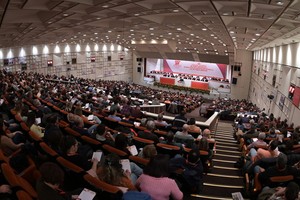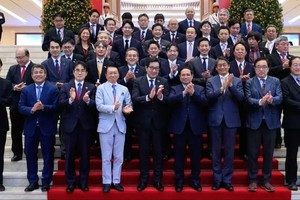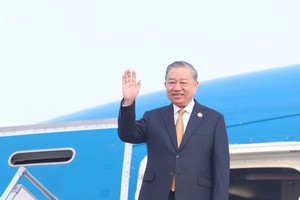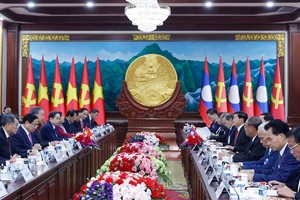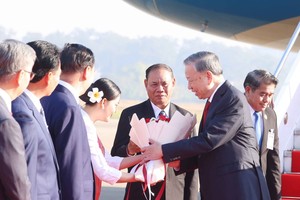The technical assistance will provide policy advice, assist in infrastructure project preparation, and strengthen institutional capacity to enhance sustainable economic growth.
The financing includes a US$2.7 million grant from the Government of Canada and a US$1.9 million grant from the Government of Australia, both to be administered by the ADB.
“Vietnam has achieved impressive socio-economic development over the past three decades by maintaining high economic growth gained from its structural reforms,” said ADB Principal Private Sector Development Specialist Donald Lambert. “To meet the targets of its upcoming Socio-Economic Development Strategy 2021-2030, maintain growth rate of 6-7 percent, and achieve the Sustainable Development Goals, Vietnam will need to further accelerate economic reforms, expanding the role of the private sector in driving the country’s development.”
Between 2011 and 2020, Vietnam invested an estimated US$117 billion in infrastructure. However, the country’s infrastructure remains underdeveloped compared to its regional peers. The country will need to mobilise an estimated US$237 billion between 2021 and 2030 to close the infrastructure deficit, which is US$49 billion more than the historical spending trajectory.
Recognising the potential of the private sector to help close the infrastructure deficit, Vietnam’s Socio-Economic Development Strategy 2021-2030 prioritises removing barriers to open competition and developing a supportive environment to increase the private sector’s contribution to the economy, including a larger role in infrastructure development.
ADB’s new technical assistance will help by delivering policy advice on PPP and private sector development, piloting projects that embed the G20 Quality Infrastructure Investment principles, and strengthening PPP and private sector development institutional capacities.
Recently, ADB Country Director Andrew Jeffries said that Vietnam has sufficient conditions to achieve the twin targets of curbing the Covid-19 pandemic and securing economic growth in 2021.
Talking to the Vietnam News Agency about the recovery capability of the country’s economy amid the fourth wave of Covid-19 infections, he expressed his optimism about the country’s economic outlook, given the positive economic statistics recorded in April and May.
In the first five months of 2021, the Vietnamese economy continued to post encouraging signs in export, foreign investment attraction, FDI disbursement, and retail sales.
However, Jeffries also pointed out that risks have appeared when the pandemic resurged in April while the implementation of the Covid-19 vaccination plan has been delayed.
He noted that the ongoing fourth wave of infections has affected not only big cities like Hanoi and Ho Chi Minh City but also industrial parks in Bac Giang and Bac Ninh provinces, which are the locations of manufacturing activities by many important links in the electronics supply chain.
To realise the target of becoming an upper-middle-income country by 2030, Vietnam needs to sustain an annual economic growth rate of over 7 percent, the ADB official remarked.
The first and foremost condition to obtain such growth is that the private sector in the industry and services sectors must operate dynamically, he said, calling for conditions to be created for them to access financial, land, and technological sources and enhance corporate governance skills.
It is also necessary to rationalise business procedures for private firms and prioritise digital transformation, according to him.
Jeffries noted that Vietnam’s economic growth and development outlook is closely associated with the capability to curb the spread of the coronavirus.
The successful containment of the pandemic is the decisive factor in the 2021 growth, he went on, expressing his belief that the Vietnamese Government and people will be able to control the pandemic thanks to the important experiences gained from the previous outbreaks.
However, he also warned that unexpected outbreaks could continue to happen and impact part of the workforce, especially in industrial parks.
The only way to help push back the pandemic, ensure long-term safety for people, and create conditions for economic development is to step up Covid-19 vaccination, he added.





